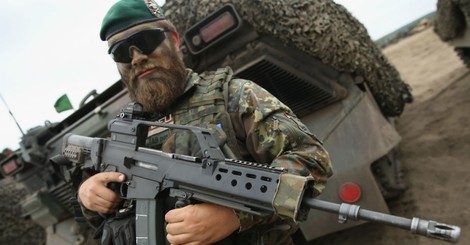Your podcast discovery platform
Curious minds select the most fascinating podcasts from around the world. Discover hand-piqd audio recommendations on your favorite topics.

piqer for: Globalization and politics Global finds
I am an Australian freelance journalist focussing on conflicts, politics, and warzones around the world. I have been working as a journalist for over 5 years, having reported from Australia, Germany, China, Egypt, Palestine, and Ukraine. I am especially interested in the way that new technologies are being used in conflict zones in unexpected and often disturbing ways. During my time working as a journalist, I also co-founded open-source war reporting site Conflict News.
Germany Is Quietly Building A European Army Under Its Command
In 2016, the European Union was on life-support. Following the refugee crisis, Brexit, and the election of Donald Trump, the tide seemed to be shifting towards nativism and nationalism. Now in mid-2017, the same cannot be said.
Populist movements have been defeated in France and the Netherlands, and strong pro-EU governments have been elected in their stead. Indeed the departure of the UK from the Union may have cut dead weight from Brussels and enabled more pro-active and much-needed reforms to be put in place.
Over the last few months (and years), the so-called Euro-crisis has forced a unified financial and monetary policy to be the central focus of these reforms. However, as the refugee crisis and growing tensions with Russia have proved, a unified military would also help make the EU more viable as a federal project. Despite this, such a military union is politically toxic for many EU member states and is rarely discussed.
But just because it isn't being talked about, doesn't mean it isn't underway. Elizabeth Braw's article for Foreign Policy chronicles a curious German-led development. The Bundeswehr, crippled by a lack of funding by Germany's pathologically non-interventionist government, has begun to integrate units from other EU member-states into its ranks.
Starting in 2013, the country has brought in some of the most prestigious and experienced units of the Netherlands, Czechia, and Romania, and integrated them into international contingents of its own armed forces, able to be deployed defensively or offensively. While this is only a beginning, the author posits that such a force could eventually grow or evolve into a more capable pan-EU military. This is of course, provided it doesn't grow too fast, and trigger another nationalist political backlash...

Interesting. I have to admit that I (being German) wasn't aware of this. Thanks.